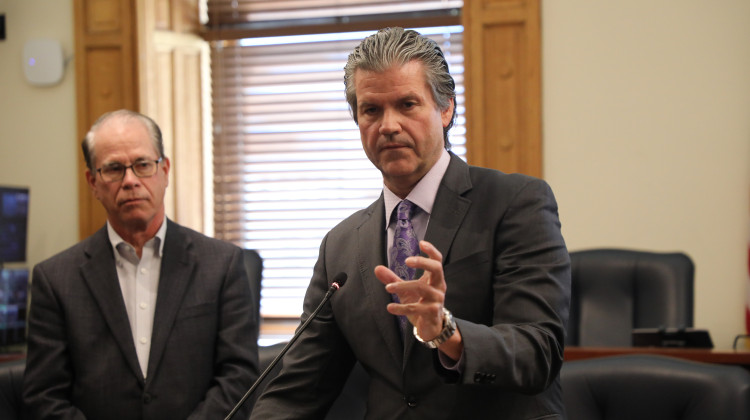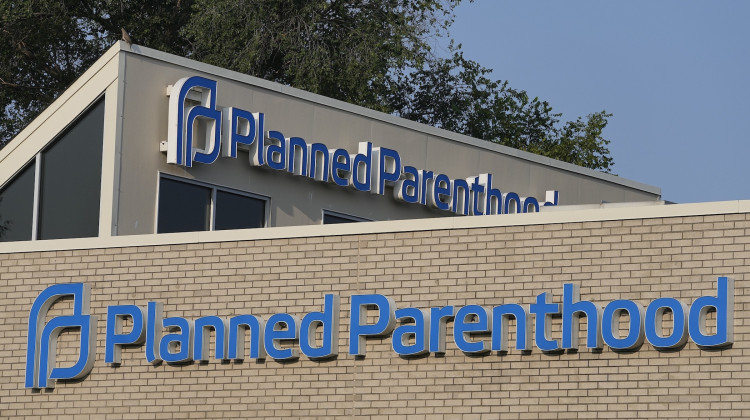Medical professionals across the country are being vaccinated against COVID-19. For Dr. Gabriel Bosslet, a pulmonologist in Indianapolis, it was a day he'll never forget. He spoke with Side Effects Public Media's Carter Barrett, before getting the vaccine — and just hours after the first dose.
Here is a transcript:
I'm Gabriel Bosslet, I am associate professor of clinical medicine, in Pulmonary and Critical Care Medicine at the IU School of Medicine.
I got the email Saturday, late evening to schedule my vaccination and I got on immediately. To me, it's the only sort of hope we've had this whole time and it's sort of the best hope possible.
It's crazy, I'm emotional about it, I get teary eyed — like I'm doing right now — I get teary eyed when I think about it. I knew I was carrying a lot around a lot of baggage about this pandemic, and I knew it's been really stressful. But until all this happened, I had no idea the amount of stress that I was carrying, and I can't express to you how excited I am to get that needle in my arm.
It is a tangible thing that I'll be able to feel that will be a little painful. But that will signal the beginning of the end of this hell.
I wouldn't roll up my sleeves for something that I didn't trust. I'm not going to put something in my body that I don't think is going to definitively be of benefit to me or to humanity. Those of us who have been on the frontlines are not only willing, but good gravy, most of us are absolutely giddy that this is happening. Physicians are usually a relatively sedate bunch, and we're like schoolchildren with this thing.
This vaccine, from a scientific perspective, first of all, is the equivalent of putting a man on the moon, we shouldn't minimize that — what the scientists have been able to do in the last nine months is absolutely miraculous. But getting the vaccine and sort of being someone who's willing to take the vaccine is our opportunity to sacrifice — extremely minimal sacrifice — both for our country and for humanity as a whole.
You know, to look at it as just getting a shot — or however you want to look at it — is to minimize it, is to minimize what this means for Americans and for the world. Because I don't want to wear a mask anymore, and I want to see my mom and dad. This minor sacrifice is what's going to get us to the point where we can now see each other without all of these precautions that we've been taking.
We don't have to put ourselves in a lot of harm's way to do it. All we have to do is roll up our sleeves and allow vaccination and that is a minor sacrifice to go back to the freedoms that we had before.
….
Hey, Carter, it's Gabe. I got my shot. I had a 5:20 appointment. I got there a little early, there was no line. Start to finish, it was probably a five-minute affair. And just logistically was perfect. IU Health did an unbelievable job of coordinating something that complex in a very short amount of time.
It was emotional. I've not seen a group of health care workers with that many smiles, even under masks, for a long time. It just felt hopeful. It felt like things were almost normal again, and it was awesome. I'm super excited.
I go back on January 4 for my second inoculation. I can't wait for everyone to get this vaccine and be done with this. I'm just beside myself with glee. So that's it, It was just a great process. And a day I'll never forget: December 16, 2020."
This transcript has been edited for brevity and clarity.
 DONATE
DONATE








 View More Articles
View More Articles


 Support WFYI. We can't do it without you.
Support WFYI. We can't do it without you.